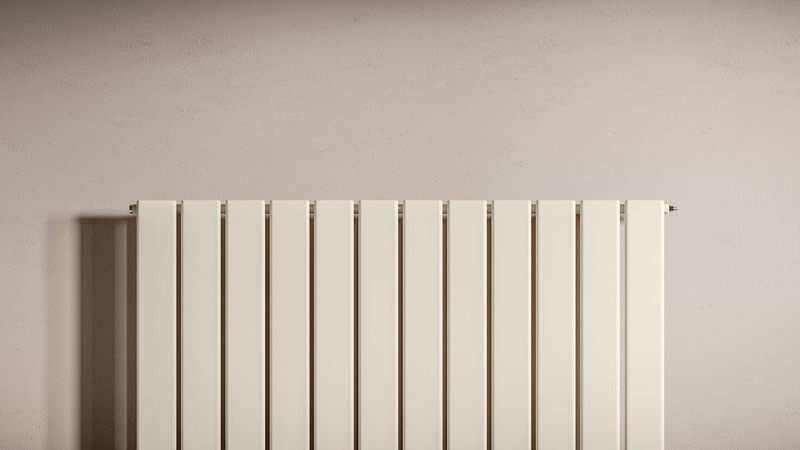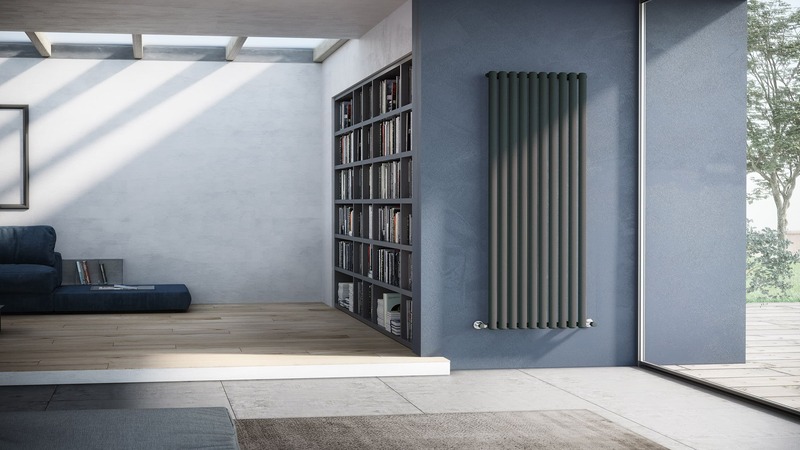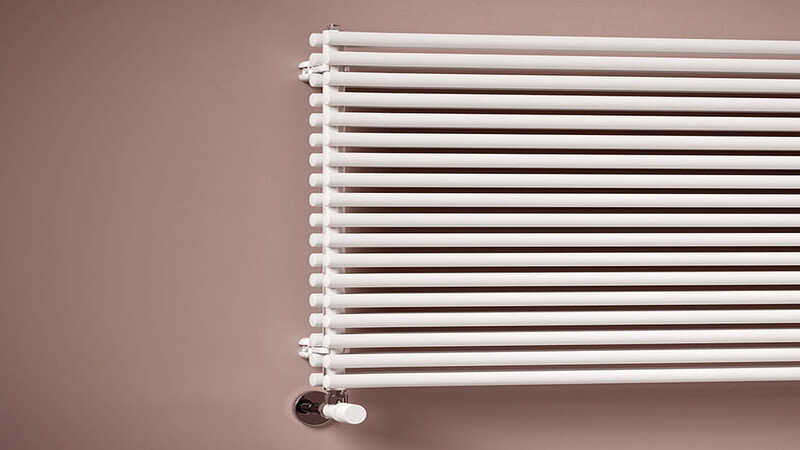Choosing the right radiator for your home is a very important step: an efficient and suitable radiator can ensure both energy savings and thermal comfort. But how do you choose? One key factor to consider is the material it is made of.
Steel radiators are certainly an excellent option, as they have great thermal inertia: they heat up quickly and retain heat for a long time after the heating system is turned off. This means your home stays warm and cosy for longer. However, they are not the only solution available—there are other options to explore. Let’s discover them together.
Which radiator materials heat the most?
The technological advancements in the heating sector over recent decades have not only transformed the types of heating systems, introducing innovations like heat pumps that utilize renewable energy instead of gas. They have also significantly improved radiator production, focusing on both modern design and thermal efficiency.
Alongside traditional cast iron radiators, which have been a staple for years, steel and aluminum radiators have become popular alternatives. But what distinguishes them beyond the type of material?
- Cast iron radiators are known for heating up slowly but retaining heat for a long time, even after the heating system is turned off. However, they are heavier and more complex to install.
- Steel radiators, like cast iron ones, retain heat after the system is turned off but heat up much faster. On the downside, they are not ideal for larger rooms.
- Aluminum radiators heat up more quickly than steel ones but also cool down faster. They are particularly suited for smaller spaces.
As you can see, determining which radiators heat the most depends on the size of the space to be heated. For a comprehensive and professional assessment, it is advisable to consult an experienced technician to base the final decision on qualified recommendations.
What is the difference between steel, aluminum, and cast iron radiators?
While cast iron radiators now make up a smaller share of the market due to their older design, high cost, and more complex installation process, it is worth focusing attention on the other two types of radiators: steel and aluminum.
- The key difference between steel and aluminum radiators lies in their thermal inertia.
- As mentioned earlier, steel radiators take longer to heat up but also cool down more slowly. This means they provide more lasting thermal comfort.
- In contrast, aluminum radiators have lower thermal inertia. They heat up and release heat more quickly but cool down faster as well.
Each type offers specific advantages depending on the heating needs and the space being heated.

What are the best aluminum radiators?
The speed at which aluminum radiators heat up rooms helps optimize energy consumption, making them an excellent choice for those considering new radiators.
The market offers versatile models with sophisticated designs, making this type of radiator a standout option for advanced home heating solutions. With sleek, slim aesthetics perfect for contemporary spaces, they also come in bold designs that add character to any home.
The energy efficiency of aluminum radiators can be further enhanced with smart home features that help maintain ideal thermal comfort and allow remote control of heat distribution. One such feature is smart thermostatic valves.
These valves enable intelligent heating planning based on daily, hourly, and weekly habits. The system activates and heats the radiators so that, upon returning home, residents find a cozy environment during the winter months. Users can set the desired temperature for each room according to their specific needs.
Smart valves, connected to the home Wi-Fi system, can be controlled directly via smartphone and are equipped with sensors that detect when a window is open. If a window is accidentally left open, the smart valves temporarily and locally pause the heating, preventing energy waste and reducing utility bills.
The added value of aesthetic innovation in the design of the latest generation of aluminum radiators is complemented by the variety of colours available for smart thermostatic valves, ensuring a perfect match with the installed radiator's color scheme.

How long do aluminum radiators last?
To maintain high thermal efficiency, the advantages offered by smart home features should be complemented by regular radiator maintenance. Determining the lifespan of a radiator is not straightforward, but it typically ranges between 15 and 20 years.
Cleaning aluminum radiators to remove sediment buildup and blockages caused by time and usage—through bleeding or chemical flushing performed by a skilled technician—undoubtedly helps extend the radiator's service life.









































